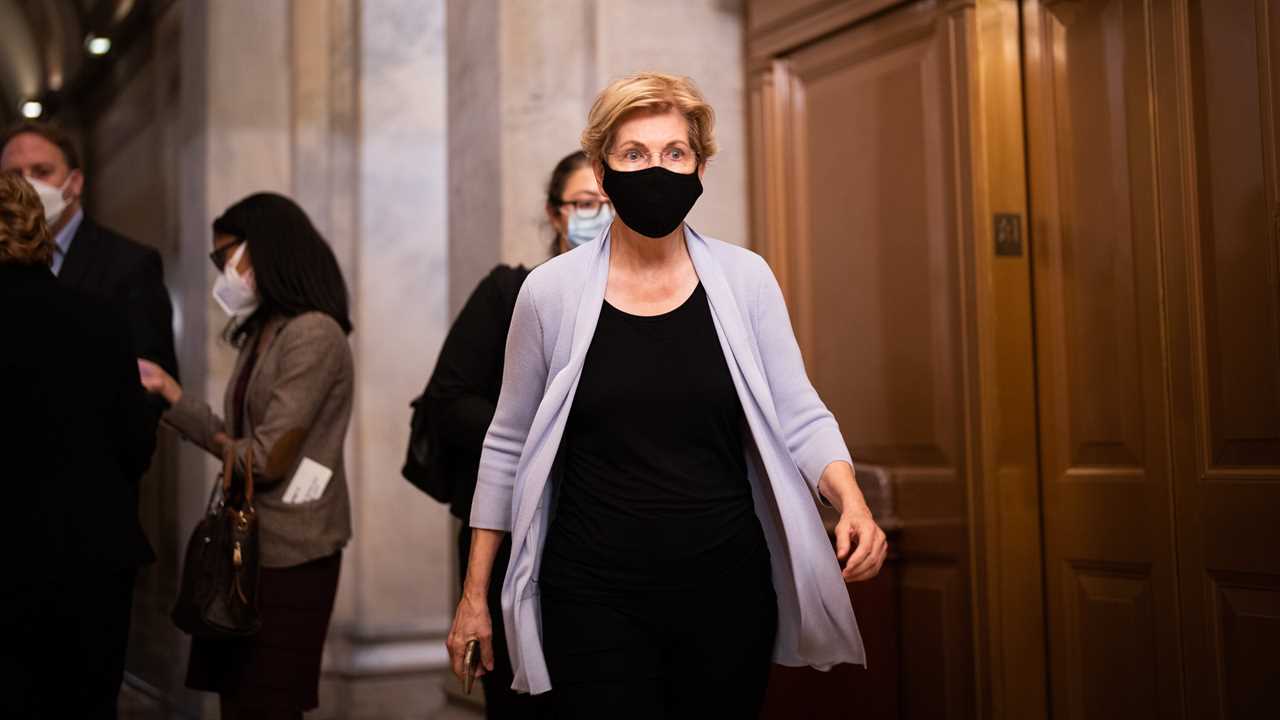
Senator Elizabeth Warren, Democrat of Massachusetts, called on Monday for an investigation into whether top Federal Reserve officials engaged in insider trading in 2020, when some bought and sold securities that could have benefited from central bank policy moves.
Ms. Warren, a powerful lawmaker who sits on the committee that oversees the Fed, sent a letter to the Securities and Exchange Commission chair, Gary Gensler, asking him to look into transactions that three central bank officials carried out last year.
Richard H. Clarida, the Fed’s vice chair, and two of the central bank’s 12 regional presidents — Robert S. Kaplan from the Federal Reserve Bank of Dallas and Eric S. Rosengren from the Federal Reserve Bank of Boston — engaged in transactions that have drawn blowback.
While most of the trades were not unusual for central bank officials, they occurred during a year in which the Fed rolled out a wide-ranging market rescue touching practically every corner of finance. That may have given central bankers unique insight into what might happen next with asset prices.
Ms. Warren asked Mr. Gensler to “determine if any of these ethically questionable transactions may have violated insider trading rules,” adding that the trading reflected “atrocious judgment by these officials, and an attitude that personal profiteering is more important than the American people’s confidence in the Fed.”
Mr. Kaplan traded millions of dollars in individual stocks last year, and Mr. Rosengren traded in real estate tied securities when he was warning about problems in that market. Both officials resigned last week amid the furor over their recent financial disclosures, although Mr. Rosengren attributed his early retirement to health issues. Jerome H. Powell, the Fed chair, said last week that the Fed was looking into the presidents’ trades to make sure they complied with central bank ethics rules.
Mr. Clarida shifted between $1 million and $5 million from a broad-based bond fund to broad-based stock funds on Feb. 27, 2020.
The Fed has said Mr. Clarida was carrying out a preplanned portfolio rebalancing. It declined to comment about when the specific transaction was planned, but pointed out that Mr. Clarida carried out a similar transaction in 2019.
Holding broad-based investments is typically considered best practice for government officials, and it is not unusual for people to rebalance their portfolios. But the timing of Mr. Clarida’s transaction — first reported in his disclosures in May — has garnered attention amid the broader concerns about whether the Fed’s ethics rules are too lax. That’s because it immediately predated a period of aggressive Fed policy action that propped up markets, causing people to question whether Mr. Clarida knew what was coming and moved to profit from it.
Mr. Powell announced on Feb. 28, 2020, that the Fed was closely watching the fallout from the coronavirus pandemic — the first step in a wide-ranging central bank rescue that would ultimately push up stock prices.
Latest Updates
- Ford’s sales fell 27 percent in the third quarter because of chip shortages.
- Facebook urges court to dismiss latest F.T.C. antitrust suit.
- Rental assistance funds could be clawed back from states and cities that were slow to distribute it.
Ms. Warren blasted Mr. Clarida’s 2020 move as inappropriate.
“There is no justifiable ethics or financial rationale for him or any other government official to be involved in these questionable market machinations while having access to nonpublic information and authority over decisions that have extraordinary impacts on markets and the economy,” Ms. Warren wrote in her letter.
The trading activity that happened among Fed officials in 2020 was not historically abnormal. Mr. Kaplan traded stocks throughout his tenure. A former Fed vice chair, Stanley Fischer, bought and sold individual stocks, his disclosures for 2016 showed, and Fed governors often rebalance their broad-based portfolios.
But the fact that the transactions happened during a year in which the Fed was so crucial to assets of all varieties has stoked calls for new ethics rules at the central bank. The Fed intervened in the municipal and corporate debt markets for the first time last year, expanding into areas that may not have been considered under the central bank’s existing restrictions.
Mr. Powell has ordered a review and overhaul of the central bank’s guidelines and practices, which the Fed has said are in line with those recommended to government officials broadly and in some cases stricter. Ethics officials have said that given the special and increasingly expansive role the central bank plays in markets, it is probably necessary for it to adopt stricter limitations.
The recent uproar over Mr. Clarida’s trades in even broad, boring funds — and demands to know what he knew when he made the decision to rebalance toward stocks — underline why the ethics practices most likely need to change, said Norman Eisen, a senior fellow at the Brookings Institution and an ethics adviser in President Barack Obama’s White House.
“Because of the extraordinary influence of senior officials at the Fed on bond and equity markets, those questions are legitimate,” Mr. Eisen said. “It does point, again, to the need for special Fed rules.”
Ms. Warren announced last week that she opposed Mr. Powell’s renomination to the Fed for a new leadership term when his expires early next year. She cited his regulatory track record, not the ethics issues, as her rationale, calling him a “dangerous man” to have at the central bank's helm.
She did note in her letter on Monday that “it is not clear why Chair Powell did not stop these activities, which corrode the trust and effectiveness of the Fed.”
Did you miss our previous article...
https://trendinginthenews.com/usa-politics/biden-officials-end-ban-on-abortion-referrals-at-federally-funded-clinics






